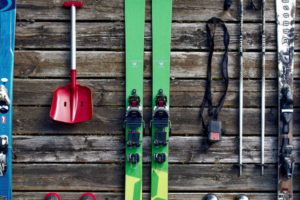When applying for a new job, you can expect the process to involve several steps, and one of those is the CRB (Criminal Records Bureau) Check. This step allows the employer to get information on your criminal history. They will find out about your history of convictions, warnings, or anything else on your record that might disqualify you from working with certain groups.
CRB and DBS: What’s the Difference?
The CRB Check essentially became the DBS (Disclosure & Barring Service) Check in 2012. The Criminal Records Bureau merged with the Independent Safeguarding Authority to make things more streamlined, and the DBS Check was born. While both CRB and DBS still technically exist, it is no longer possible to order the old CRB Check.
What this means for you is that, if you have an old CRB Check certification, an employer can still honor it. But if they need a new check, this would now go through the DBS system. Ultimately, the information that comes out of it is still the same. The internal process is the only significant change.
How Long Does A CRB Check Take?
How long the check takes depend on what level of check the employer has ordered. There are four types of checks: basic, standard, enhanced, and enhanced with barred lists.
Which version your employer chooses will depend on the job and who you will be interacting with. Especially when vulnerable groups are involved, higher levels of your record check are needed.
- The basic check will show your warnings and unspent convictions. Those are the ones that are still on your record. This is a simpler check than the others and will take less time. You will typically have to wait 14 days. This is also the only check you can order for yourself.
- The standard check goes a step further and shows everything the basic does, along with your spent convictions – the ones that have been removed from your record. This one can take about 8 weeks.
- The enhanced check gives the same information as the standard check, but also tries to find relevant information from local police that might disqualify you.
- When the enhanced check with barred lists is used, your employer will find out if you are on any official lists that bar you from this kind of work. Both enhanced versions also take about 8 weeks but could take longer if several police units are involved.
Final Thoughts
This can be a long process, especially if you are doing work with vulnerable groups. The good news is that once your check has been certified, there is no expiration date. It is really up to your employer whether they want to perform another check. The exception is if you are applying for something requiring more scrutiny than your previous role.
The purpose of these checks is to protect employers and the people they serve by making sure the right people are filling these roles. This is why the process may seem to drag out, especially as advanced checks are used. When you know what to expect, you can have a timeline for finding out the most important thing: whether you got the job.








